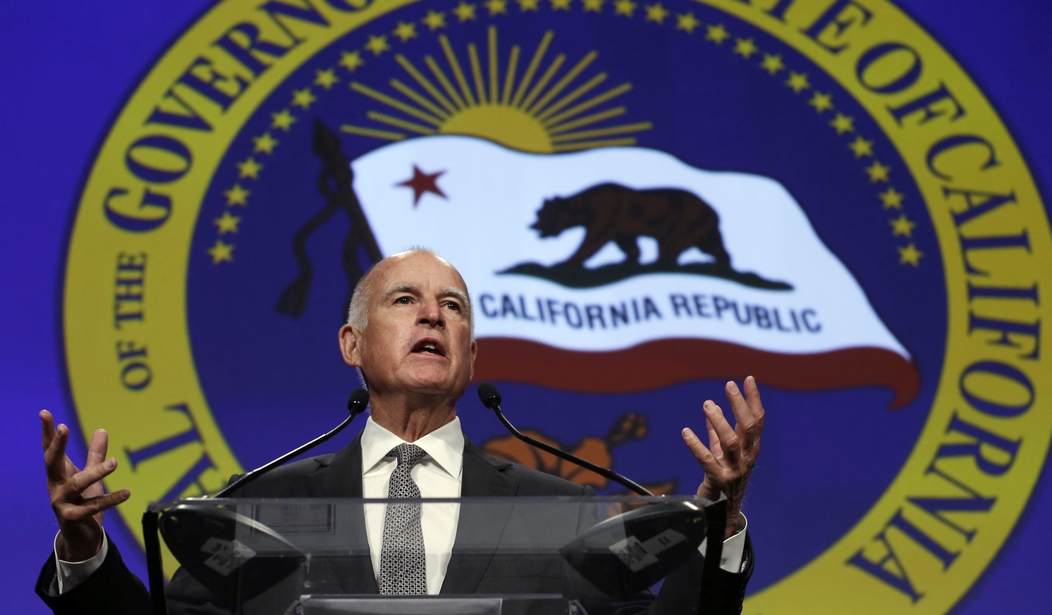Jessica Levinson, a Loyola Law School professor, has no doubt someone will back a court challenge to legislation aimed at forcing President Trump to release five years of his income tax returns before the 2020 election.
“You can bet that if Governor Brown signs it, the second the ink is dry someone will sue,” Levinson told the Mercury News.
Trump refused to release his income tax returns during the 2016 presidential campaign. He was the first presidential contender to do so since President Ford.
Senate Bill 149, the Presidential Tax Transparency & Accountability Act, was approved by the California Legislature on Sept. 15. It does not specifically mention Trump. Any candidate who refuses to release the required returns would not be allowed on the 2020 presidential primary election ballot under SB 149.
Democratic Sens. Mike McGuire and Scott Wiener, sponsors of the legislation, said the bill was only intended to provide voters with the information they needed to know about a candidate’s potential conflicts of interest, business dealings, financial status, and charitable donations.
“Transparency is a nonpartisan issue,” said McGuire. “And it’s transparency that provides the basis for accountability in government. SB 149 gets us there, and we are grateful to Secretary Padilla for supporting this important accountability measure.”
Trump’s name might not be in the letter of the proposed law, but neither McGuire nor Wiener was shy about tying Trump to their bill.
“The more we hear about the possible collusion between the Trump campaign and Russian officials, the more it becomes clear that the American people didn’t have the full picture leading up to the election in 2016,” said Wiener.
“The vast majority of Americans – Republicans and Democrats alike – want President Trump to release his tax returns, just like every other president for the past 40 years,” McGuire said.
Republican Sen. Joel Anderson challenged McGuire and Wiener during a Senate floor debate in May to expand the legislation to include themselves.
“If it’s good enough for a presidential candidate, it’s certainly good enough for a governor, and all five constitutional offices,” said Anderson.
Gov. Jerry Brown (D) might hesitate to sign SB 149, if only because during the last two election cycles he refused to release his tax returns.
But if Brown does sign the Presidential Tax Transparency & Accountability Act, and if it is challenged in court, the Mercury News reported the case is expected to center on a 1995 U.S. Supreme Court case that found states can set up requirements for candidates.
However, the justices also ruled states cannot invent new qualifications for federal office beyond what is constitutional.
Richard Painter, a law professor at the University of Minnesota, said SB 149 would not violate that ruling.
“It doesn’t restrict the ballot based on any qualifications,” said Painter. “It’s not very onerous because you’ve already prepared your tax returns.”
But Richard Winger, a political analyst and editor of Ballot Access News, said the California Legislature had gone beyond its authority with SB 149.
“If they can do this, we could theoretically force presidential candidates to do all kinds of things,” said Winger.
California Republican Party Chairman Jim Brulte is not promising court action yet if Brown signs SB 149, but he said the state GOP was looking at all of its options.
“This is unnecessary and it’s just part of the Democratic focus on Donald Trump,” Brulte said. “Trying to disadvantage Republicans in California from having a choice is really beneath the dignity of most members of the Legislature.”
Brown has until Oct. 15 to decide whether to sign the bill.
“I want to read it,” Brown told CNN. “I want to look at the legality in the face of federal law.” Brown said he released his tax returns during the 1974 and 1978 campaigns, but declined to do so in 2010 and 2014 because his opponents did not release theirs.
Even after approving SB 149 Sept. 15, California Assembly Democrats weren’t finished with Trump. They then passed a resolution calling for Congress to censure Trump because of his remarks blaming both sides for the deadly August rally in Charlottesville, Va., at which counterprotesters were run over; the suspect was marching with white supremacists earlier in the day.
“President Trump’s comments to legitimize these groups open up the wounds that many have experienced over many, many years,” said the resolution’s sponsor, Assemblyman Tony Thurmond (D).
Republican Assemblyman Michael Harper voted against the censure resolution, as he did on SB 149.
“For the twelfth time, I get it,” Harper said. “The Democrats in this body don’t like Donald Trump.”









Join the conversation as a VIP Member